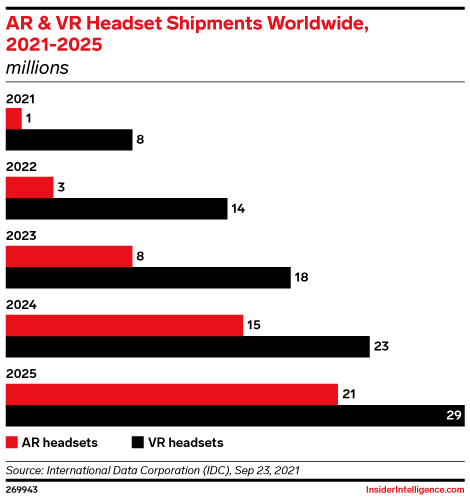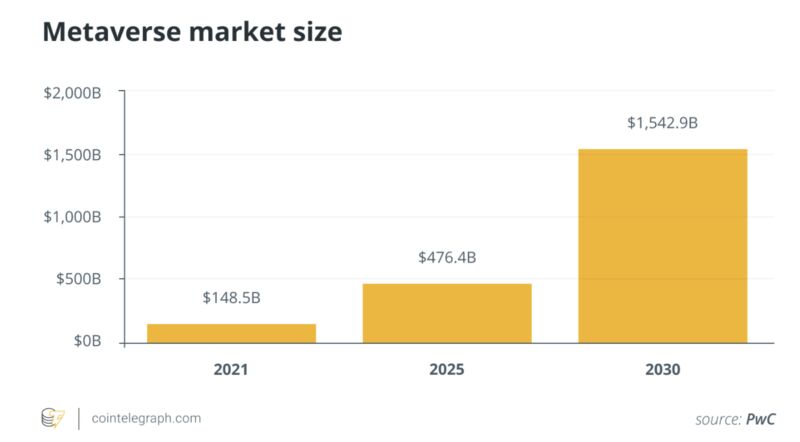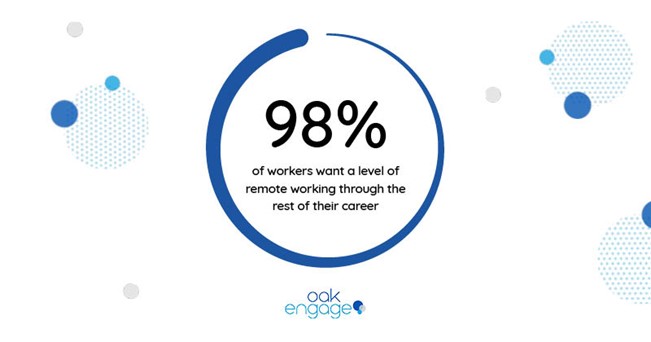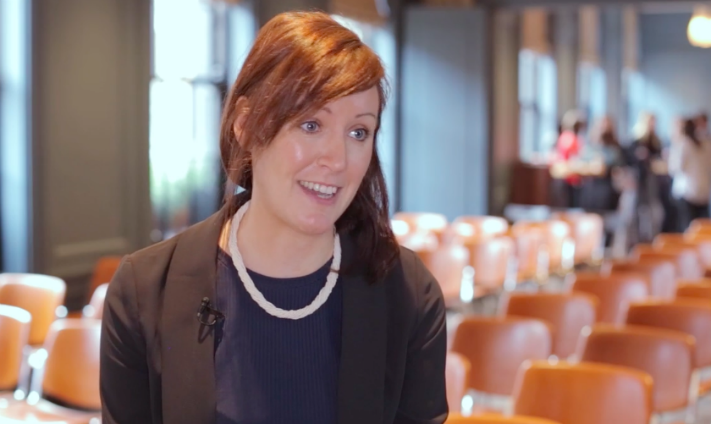This piece is part of Jobbio’s Expert Input guest contributor series
The metaverse has the potential to be something more significant than a virtual reality application.
So let’s explore the potential of the metaverse in the workplace and how the combination of virtual and face-to-face experiences will shape the future of HR.
 What is the Metaverse?
What is the Metaverse?
The term Metaverse is a blend of meta (beyond) and verse (derivative of ‘universe’). It represents the concept of a futuristic iteration of the present internet consisting of 3-dimensional virtual spaces connected to a virtual universe.
The integration of the metaverse is becoming widespread. It’s already an influencing factor for modern tech trends.
Image Source
The metaverse relies on goggles to deliver the VR (virtual reality) experience. The result is an XR (extended reality) that transforms reality and interaction through technology.
The global pandemic forced the world to face the inevitability of remote solutions for several activities including work. Even marketing professionals have turned to strategies such as launching an email referral program to stay ahead of changes.
With the shift in the global perspective concerning work safety, XR has become a critical tool for eliminating physical distance in a safe environment and allowing employees to focus on delivering valuable customer service.
Paradigm shift
For HR, this paradigm shift presents the challenge of delivering a virtual employee experience in a manner that hasn’t been implemented.
The vision is to create access to the metaverse from different devices and locations through mobile device apps, PCs, and immersive augmented and virtual reality resources.
How can HR teams prepare for this technological revolution? Developing good ideas is only a fraction of the assignment, leveraging available resources for inbound marketing, values, purpose, and culture is required to manage the transition successfully.
HR in the Metaverse
Enhancing the performance of hybrid work systems is among the priority use-cases for the metaverse. With many employees still working from home, businesses have tried to reprise the physical office experience to varying degrees of success. Work systems have to depend on remote tech solutions such as VoIP to facilitate hybrid working.
The metaverse experience could be applied to solve hybrid work flaws by connecting existing video tools and experiences.
This could help bridge the gap between virtual and physical work experiences and enable better interaction and collaboration in virtual spaces.
Observability software allows you to track your entire tech stack so you can identify issues across software from one application.
New application approaches have improved the metaverse’s market size which is set to reach new heights over the coming years.
Image Source
Several businesses like Hyundai and Siemens have begun applying metaverse-based solutions to the employee lifecycle. The recruitment phase is a popular target with AI skill capacity evaluations, employee inductions, and online aptitude tests being used in a combined approach.
Virtual reality exposes people to situations they would encounter in physical settings, but does this within a controlled and secure virtual environment that supports learning and development.
Furthermore, employees can easily tackle jobs in several locations via the metaverse. Employers can continue onboarding them virtually without completely eliminating the real-world experience.
Hybrid work systems have fast-tracked the acceptance of work-space flexibility in the modern job market.
Image Source
The metaverse can revolutionise HR’s reaction to this demand. Consider the following examples to get a taste of the real-life test cases for the metaverse:
Hosting virtual recruitment fairs
Prospective candidates can interact with employers through virtual recruitment fairs which would transform the concept of networking. As an employer, you can give candidates a real picture view of the kind of work they will be doing.
Conducting interviews and assessments
The metaverse could drastically change the way we conduct interviews and assessments. Imagine hiring care assistants for a nursing home. Candidates can be exposed to simulated on-site situations to judge their skills and competencies.
Hosting meetings
Hosting team meetings and one-on-one sessions becomes much easier in the metaverse. Group and individual conversations will be more immersive compared with current video conferencing options.
Proper implementation is crucial to the success of the metaverse. If applied as a component of a comprehensive employee experience strategy, the metaverse could facilitate meaningful collaboration in the workplace.
The Virtual World Beckons
In the modern world where employee demands carry more weight than ever before, HR must stay ahead of paradigm-shifting trends.
Strategic HR planning should include drafting plans for the future of remote work and preparing the workforce for changes to come. This must include workforce management deciding how to bring the best out of employees amid rapid technological advancement.
HR should begin thinking about the innovation roadmap and where the workforce fits into it. Clear understanding of the metaverse and its applications in the work environment is a great place to start.
 About the author:
About the author:
Jenna Bunnell is the Senior Manager for Content Marketing at Dialpad, an AI-incorporated cloud-hosted unified communications system that provides valuable call details and teleconferencing for business owners and sales representatives.














